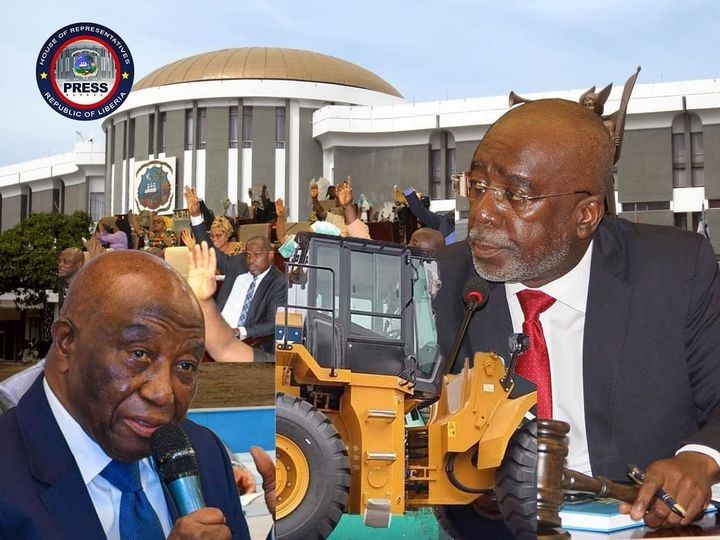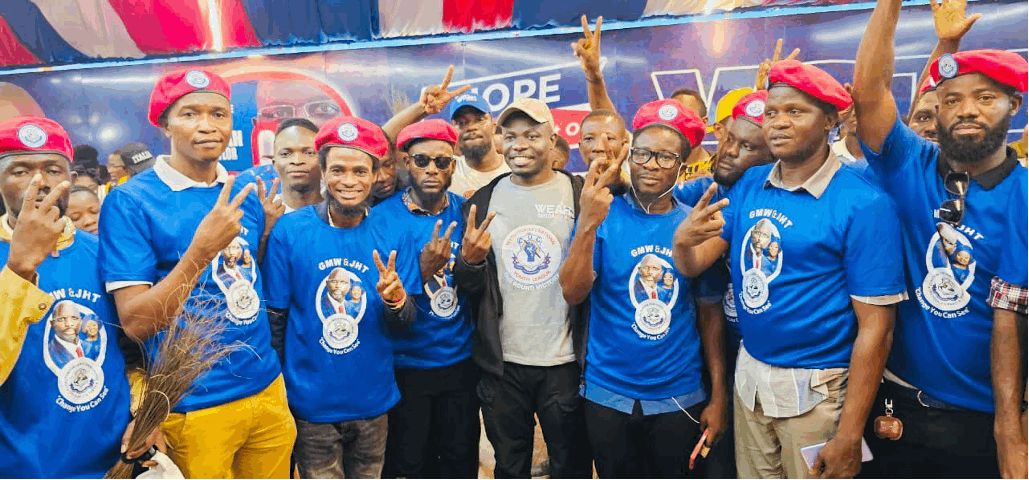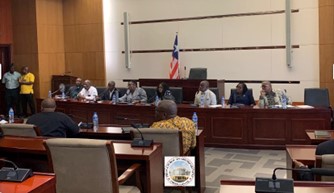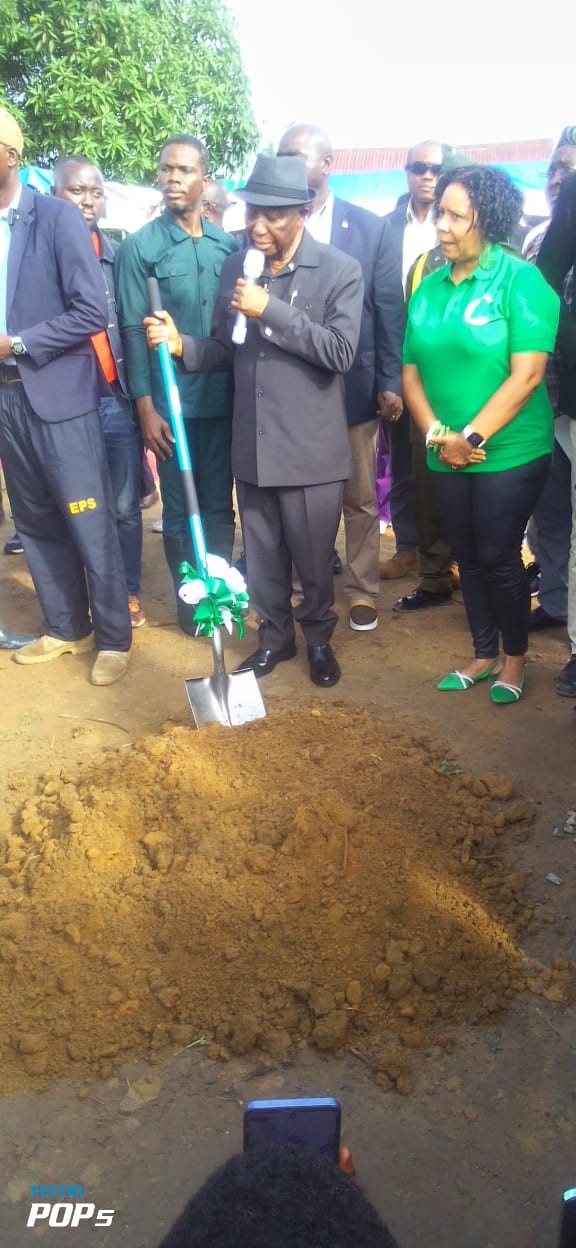BudgIT Liberia, a civic organization striving to make the national budget more understandable and accessible in recent time, has launched the Fiscal Year 2023 Simplified Budget Book. The event was held on Thursday, July 20, 2023 at the office of Smart Liberia, Jallah Town road.
The financial instrument, according to BudgIT Liberia’s Country Lead, Abraham Varney, is meant only to provide information on the national budget and public data as contained in the Ministry of Finance and Development Planning’s document, with no extra data or figures added by his organization.
Varney said BudgIT’s innovation within the public circle comes with the creative use of government data by either presenting these in simple tweets, interactive formats or infographic displays, with the objective of using creative technology to intersect citizen engagement with institutional development to drive societal change in Liberia.
“Liberia’s inability to tackle most developmental challenges such as poverty, unemployment and the deplorable state of infrastructure has been primarily attributed to poor governance and lack of transparency at the different levels of government. This is worsened with the wide gap between elected officials and the electorate,” Varney observed in a press release.
According to Varney, for Liberia’s development to thrive, elected and appointed officials need to be accountable to citizens.
Dichotomizing the budget, he quoted the FY2023 Simplified Budget Book, “The government anticipates an overall revenue of US$782.94 million this fiscal year, with an anticipated US$672.94 million coming from domestic sources, and US$110 million coming from external resources, of which $107.2 million is loan while 2.8 million is grant. Tax revenue, at US$553.61 million (82.26%), accounts for the majority of the domestic revenue, mostly from income and profit taxes, foreign trade, and goods and services. Non-tax revenue is estimated to be US$119.33 million (17.73%), primarily from property income taxes.
“The total expenditure is estimated to be US$782.94 million, with recurrent expenditure accounting for US$634.90 million (81.09%), debt service accounting for $99.91 million, and public-sector investment plan accounting for very small fraction of the national budget amounting to US$148.05 million (18.91%). With a large portion of the national budget going to compensation and overhead costs year after year, there is little money left for Public Sector Investment Plan (PSIP) to implement and improve infrastructure; as a result, local businesses and foreign investment are less attracted due to poor infrastructure, such as electricity, water, and road connectivity, among other things, lowering the revenue base and potential of the economy.”
The BudgIT instrument underscored that debt servicing consumes a significant portion of the government’s budget and limits government’s ability to invest in other sectors such as infrastructure, education and healthcare. “Total debt service, subscription, and other payables are estimated to be US$99.81 million in fiscal year 2023, a 4.9% decrease from the FY2022 forecast of US$105 million. The suspension of principal repayments on domestic assets owned by commercial banks, such as promissory notes and others, is primarily responsible for the decrease in debt service. Debt servicing over the past year, the accumulated debt stock stood at US$1.96 billion (2.33% of GDP) at the end of September 2022, resulting in a continuous rise in debt servicing costs in Liberia, ostensibly due to the pandemic effect of COVID-19 and growing government sizes, as well as other factors such as interest rates, inflation, exchange rates, and the government’s fiscal policies,” Varney quoted the Simplified Budget Book as saying.
“The Public Sector Investment Plan (PSIP) funds are spent on acquiring fixed assets and implementing projects to stimulate economic growth and meet the needs of citizens, such as roads, hospitals and security. This year, the PSIP is allotted 148.05 million dollars or 17.% of the total expenditure portfolio; It will fund on-going projects and prioritize those that are 70% complete. Nonetheless, the three-year pattern of PSIP budget and outcome figures, excluding 2022, demonstrates that the program has underperformed. In addition, PSIP projects and programs are typically untraceable and inaccessible concerning location, implementing department, and project status.
“The biggest allocation in the 2023 budget in terms of the public sector investment plan (PSIP) will mainly go to the transparency and accountability, energy and environment, and infrastructure and basic sector. While allocations to the sectors have risen, it is essential to note that equally critical social sectors such as education and health did not get a substantial boost, and the agriculture sector got zero allocation.”
However, the document observed that despite Liberia’s proposed public investment plan increasing by approximately 11% from 2022, unfortunately the education budget was cut by 39%, the health budget was slashed by about 86%, and the agriculture budget was ignored with no allocation compared to last year’s allocation.
Varney observed that Liberia faces a number of revenue generation issues, including ineffective administration and enforcement, a limited tax base, and lack of economic diversification. He stated that the government recently improved revenue collection by improving tax administration and broadening the tax base, which has significantly improved the country’s economic situation, particularly domestic revenue, which finally saw 16% increase in 2021 ($547.3 million) since 2013 ($470.49 million). “To secure long-term revenue growth, the government must address tax evasion and low compliance, as well as modernize customs administration, in order to increase efficiency and minimize corruption,” he recommended.
He emphasized that an open and transparent process will benefit both the government and the citizens, and allow citizens to become aware of crucial government projects in their area, fostering public trust and encouraging public participation in governance. He stated that corruption thrives in obscurity; therefore, if development projects are made open and accessible, there will be more implementation and nationwide improvement.







